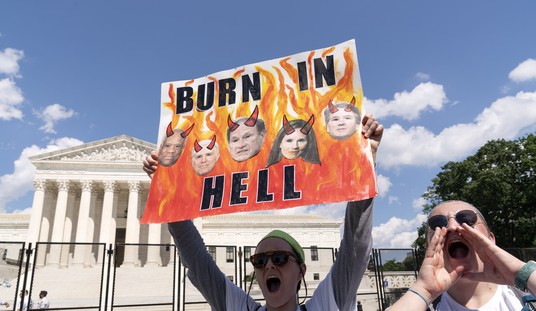Niall Ferguson imagined what a repeat of the sequence of events which led to the collapse of the first era of globalization would look like if updated to the 21st century at a lecture in July, 2007. The hypothetical situation was disconcertingly closer to actual events than he might have imagined, had he imagined it was actually going to happen. More than a year before the current financial meltdown, Ferguson followed the events which, 90 years ago, led to the First World War. First there was cascade of events around the time zones.
Perhaps the most remarkable feature of the crisis of 1914 was the closure of the world’s major stock markets for up to five months. The Vienna market was the first to close, on July 27. By July 30 all the continental European exchanges had shut their doors. The next day, London and New York felt compelled to follow suit. Although a belated settlement day went smoothly on November 18, the London Stock Exchange did not reopen until January 4. Nothing like this had happened since its foundation in 1773. The New York market reopened for limited trading (bonds for cash only) on November 28, but unrestricted trading did not resume until April 1, 1915. Nor were stock markets the only ones to close in the crisis. Most U.S. commodity markets had to suspend trading, as did most European foreign-exchange markets. The London Royal Exchange, for example, remained closed until September 17. It seems likely that, had the markets not closed, the collapse in prices would have been as extreme as it would be in 1929, if not worse.
And for those who think that fiat money is at the root of all evil, there’s this:
There are many differences between our world and the world of 1914. Most currencies then were pegged to gold. That inclined some central banks (notably the Bank of England) to raise rates in the initial phase in the crisis, in a vain attempt to deter foreigners from repatriating their capital and thereby draining gold reserves. The adequacy of gold reserves in the event of an emergency had been hotly debated before the war; indeed, these debates are almost the only sign that the financial world foresaw trouble. The gold standard, however, was no more rigidly binding than today’s informal dollar pegs in Asia and Latin America; in the case of war, a number of countries, beginning with Russia, simply suspended the gold convertibility of their currencies. In both Britain and the United States formal convertibility was maintained, but it could have been suspended had it been thought necessary. (The Bank of England did request, and was granted, a suspension of the 1844 Bank Act, but this was not the same as suspending specie payments.) In each case, the crisis prompted the issue of emergency paper money by the Treasury: in Britain, £1 and 10 shilling Treasury notes, in the United States, the emergency notes that banks were authorized to issue under the Aldrich- Vreeland Act of 1908.
Mark Twain once wrote that “the past does not repeat itself, but it rhymes.” Why it rhymes is an interesting question. Perhaps what is common to catastrophes are not the events but the processes. Institutions themselves cannot seem to retain essential memory. It is people who must remember, and people forget. If traders are notoriously unable to remember the last crisis, politicians are equally unlikely to recall past dangers. Or maybe it is the reverse: maybe people forget, but institutional memories are retained long after they lost the original purpose for which they were intended. Most developers are familiar with the phenomenon of forgotten processes and threads which are never quite destroyed; which eat up system memory or interfere with other processes until the whole shebang becomes unstable and needs a reboot. If lack of memory or memory itself is the culprit, then maybe ever hundred years or so, history hits Ctrl-Alt-Del and the operating system comes up again, new, fast and seemingly invincible.
The circumstances may vary, but maybe human folly is constant. That is paradoxically encouraging in its way because it implies that human virtue, courage and endurance can be counted on to ride to the rescue. The Greatest Generation always exists for those who are forced to assume that mantle. Inspiration has always been the handmaiden of necessity and perhaps renewal is often forced upon society by collapse.
Can we save ourselves the shocks and evolve into some welfare-like civilization which avoids grand challenges but also great moments of crisis? HG Wells believed that the end of challenge meant the end of growth. Even he quailed before the unknown shocks; yet felt there was no alternative but to go on until the final wheel was spun and the last card played. In the epilogue to his classic novel The Time Machine, Wells wrote of the Time Traveler — and perhaps of us, since we are all in a sense traveling through time:
One cannot choose but wonder. Will he ever return? It may be that he swept back into the past, and fell among the blood-drinking, hairy savages of the Age of Unpolished Stone; into the abysses of the Cretaceous Sea; or among the grotesque saurians, the huge reptilian brutes of the Jurassic times. He may even now—if I may use the phrase—be wandering on some plesiosaurus-haunted Oolitic coral reef, or beside the lonely saline lakes of the Triassic Age. Or did he go forward, into one of the nearer ages, in which men are still men, but with the riddles of our own time answered and its wearisome problems solved? Into the manhood of the race: for I, for my own part cannot think that these latter days of weak experiment, fragmentary theory, and mutual discord are indeed man’s culminating time! I say, for my own part. He, I know—for the question had been discussed among us long before the Time Machine was made—thought but cheerlessly of the Advancement of Mankind, and saw in the growing pile of civilization only a foolish heaping that must inevitably fall back upon and destroy its makers in the end. If that is so, it remains for us to live as though it were not so. But to me the future is still black and blank—is a vast ignorance, lit at a few casual places by the memory of his story. And I have by me, for my comfort, two strange white flowers—shrivelled now, and brown and flat and brittle—to witness that even when mind and strength had gone, gratitude and a mutual tenderness still lived on in the heart of man.










Join the conversation as a VIP Member